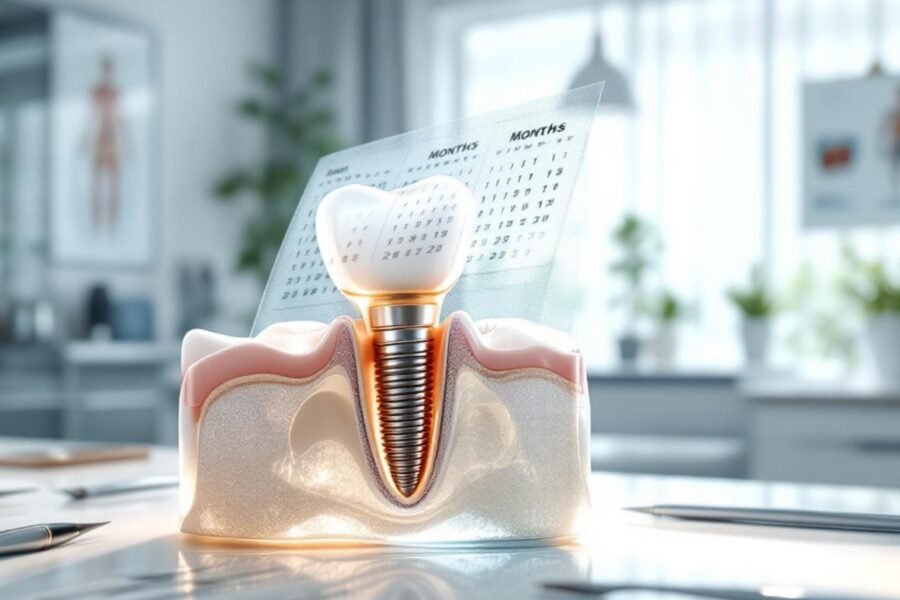Experiencing pain in the back of your mouth can be alarming, but it’s often a sign of your wisdom teeth, or third molars, coming in. This typically happens between your late teens and early twenties. Understanding what this pain feels like, why it occurs, and what you can do about it is the first step toward finding relief and protecting your oral health. This guide will walk you through the common symptoms and treatment options.
What Exactly are Wisdom Teeth?
Wisdom teeth are the final set of molars to emerge in the mouth. Most people have four of them, located at the very back of the top and bottom jaws. They are a remnant of our ancestors’ diet, which required more chewing power for rough foods.
However, modern diets are softer, and human jaws have become smaller over time. Because of this evolution, there often isn’t enough room for these third molars to erupt properly. This lack of space is the primary reason wisdom teeth can cause so many problems.
When a wisdom tooth doesn’t have enough room, it can become “impacted.” This means it gets stuck under the gum line or only partially breaks through. Impacted teeth can grow at an angle, sometimes even horizontally, pushing against other teeth and causing a cascade of dental issues.
Common Symptoms of Wisdom Teeth Problems
Identifying the signs of wisdom teeth pain early can help you seek treatment before complications arise. The experience can vary from a minor annoyance to severe pain, but some symptoms are more common than others.
The most frequent complaint is a dull, aching pain or a persistent pressure in the back of the jaw. You might also notice that the gum tissue around the emerging tooth is swollen, red, and tender to the touch. This inflammation can make it difficult to chew food properly or even open your mouth all the way.
Other typical signs that point to a wisdom tooth issue include:
- Pain that throbs or radiates to the ear or down the neck.
- Jaw stiffness and soreness, especially in the morning.
- An unpleasant taste in your mouth or persistent bad breath, which can signal an infection.
- Headaches that seem to originate from jaw tension.
If you experience one or more of these symptoms, it’s a clear indicator that your wisdom teeth need attention.
Why do My Wisdom Teeth Hurt so Much?
The pain associated with wisdom teeth often stems from impaction. When a tooth is trapped beneath the gums, it can press on nerves and the roots of adjacent teeth, causing significant discomfort and potential damage. This pressure can misalign your other teeth over time.
Another major cause of pain is infection. A partially erupted wisdom tooth creates a small flap of gum tissue that can easily trap food particles and bacteria. This area is difficult to clean, making it a breeding ground for infection, a condition known as pericoronitis. An infection can lead to severe pain, swelling, pus, and even fever if left untreated.
| Cause | Description | Common Symptoms |
|---|---|---|
| Impaction | The tooth is stuck and cannot fully erupt. | Jaw pain, pressure on other teeth, headaches. |
| Infection (Pericoronitis) | Bacteria trapped under a gum flap. | Severe swelling, bad taste, pus, fever. |
| Crowding | The tooth pushes adjacent teeth out of alignment. | General toothache, shifting bite. |
| Cyst Formation | A fluid-filled sac forms around the tooth. | Damage to jawbone and nearby teeth. |
How to Manage Wisdom Teeth Pain at Home
While professional dental care is the only permanent solution for problematic wisdom teeth, several home remedies can provide temporary relief from the discomfort.
One of the most effective methods is a warm saltwater rinse. Mixing half a teaspoon of salt into a cup of warm water and gently swishing it in your mouth for 30 seconds can help reduce inflammation and kill bacteria. This simple rinse can be particularly soothing for sore and swollen gums.
Applying a cold compress or ice pack to the outside of your cheek for 15-20 minutes at a time can also help. The cold temperature numbs the area and reduces swelling, providing welcome relief from throbbing pain.
Over-the-counter pain relievers like ibuprofen or acetaminophen can effectively manage the pain. Always be sure to follow the dosage instructions on the package and consult a healthcare provider if you have other medical conditions.
When is it Time to See a Dentist?
Home remedies are only a stopgap measure. It is crucial to see a dentist if your pain is persistent, severe, or getting worse. Ignoring the problem can lead to more serious complications that are harder and more expensive to treat.
You should seek immediate dental care if you experience signs of a severe infection. This includes symptoms like a fever, difficulty swallowing or breathing, pus draining from the gum, or swelling that spreads to your cheek and neck.
Even if your pain is mild, a dental check-up is a good idea. A dentist can take X-rays to see the position of your wisdom teeth and determine if they are likely to cause problems in the future. Early intervention is always the best approach.
What to Expect from Professional Treatment
After a thorough examination and X-rays, your dentist will recommend the best course of action. If your wisdom teeth are impacted or causing pain and infection, the most common solution is surgical extraction.
Wisdom tooth extraction is a routine procedure often performed by a dentist or an oral surgeon. Depending on the complexity, it can be done with local anesthesia, sedation, or general anesthesia to ensure you are comfortable. Removing problematic wisdom teeth can alleviate pain permanently and prevent future oral health issues.
After the procedure, your dentist will provide instructions for post-operative care, which typically involves managing swelling, eating soft foods, and keeping the area clean to ensure proper healing.
Frequently Asked Questions about Wisdom Teeth Pain
What does wisdom teeth pain feel like?
Wisdom teeth pain often feels like a dull, constant ache or pressure in the back of your jaw. It can also be a sharp, throbbing pain that may radiate to your ear or other teeth.
Can I just ignore wisdom teeth pain if it’s not severe?
It is not recommended to ignore any wisdom teeth pain, even if it’s mild. Pain is a sign that something is wrong, and issues like impaction or infection can worsen over time, leading to more serious complications.
What happens if an impacted wisdom tooth is not removed?
An untreated impacted wisdom tooth can cause chronic pain, damage to adjacent teeth, jawbone cysts, and serious infections that can spread to other parts of the body. Timely removal prevents these risks.
How can I relieve wisdom tooth pain quickly at home?
For quick temporary relief, you can rinse your mouth with warm saltwater, apply a cold compress to your cheek, or take an over-the-counter pain reliever like ibuprofen.
Do all wisdom teeth need to be removed?
No, not all wisdom teeth require removal. If they erupt fully, are properly aligned, healthy, and can be cleaned effectively, they can remain in your mouth without causing any issues.







Leave a Comment